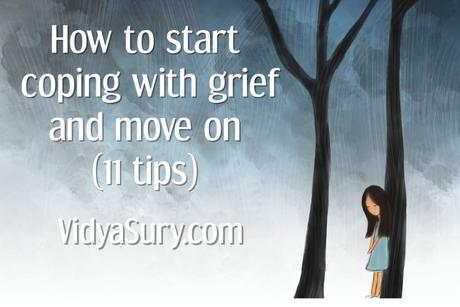
Coping with grief feels complicated, but there are many ways to get started.
In exactly one month, it will be ten years since my Mom passed away. And while life goes on, there are days when I feel as though I am nowhere near getting over it. Some days the pain is so intense I wonder how I am surviving. When I lost her, I lost my Mom and my best friend. We miss her every single day and are constantly looking for our cup of peace with our if onlys and what ifs. Starting a blog as a tribute to her memories helped me to some extent in coping with grief.
Grief comes with a longer than expected recovery process and it is certainly not easy to handle. And at this time of the year, the holidays, it can be especially difficult to cope with the loss of a loved one. If you are dealing with grief, remember that you must allow the process to take its time.
The truth is, you can't avoid or eliminate grief quickly. But as I've learned the hard way, there are ways to help you manage it better and get on the path to healing.
The starting point is to understand your grief before you can even begin to move on with life.
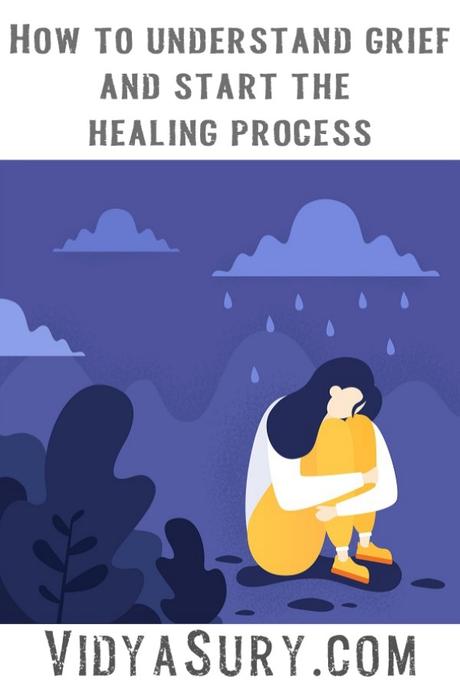
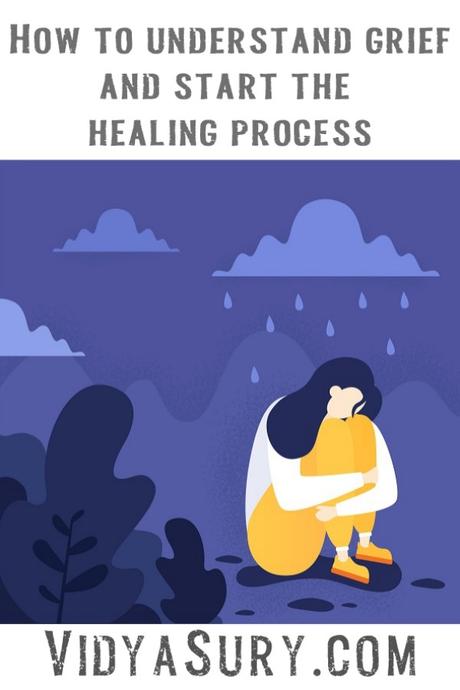
Understanding grief
Grief is about the way you handle a loss. This can be the loss of a loved one or a pet. And when it is someone really close, it can be intense. It might feel like you'll never ever get over it, never laugh again. Sometimes grief can also be due to loss of health, being laid off from work and other major life events. Letting go of a loved one is painful, but it is possible to heal emotionally and mentally.
Here's what I have learned about grief:
- There's no one size fits all with grief. Obviously, it differs from one person to another and goes through various phases during the person's lifetime.
- Grief can include anger, resentment, sadness, guilt and a range of other feelings. And one of the common themes of grief is changing thoughts. It can swing between extremes-from feeling great to feeling devastated in a short span of time. Thoughts also vary through shock, sadness, guilt, anger, and acceptance as you go through the grieving process.
- Grieving is different for each person, so how you handle it depends on your personality, coping style, life experience, faith and the nature of the loss. Some people grieve alone, while some don't. Those close to you may be concerned about your own grieving process. While some feel it is too long, there are others that may feel it is too short. Some think you are hiding your emotions while others think you are oversharing. It takes time. It happens gradually and cannot be forced or rushed.
- It is important to know that the process of grieving has no expiration date. There's no rule that it must stop at a particular point in time-it can take longer or shorter than what others perceive as normal.
- It is perfectly okay to let your loved ones know if they can help you in any way-perhaps cooking, housework, babysitting or something else that will make you feel better.
- Sometimes, it helps to use distractions to deal with grief, as they can temporarily ease the pain. They also help avoid dealing with the intensity of the emotional impact caused by your loss. Focusing on a hobby, reading, or watching a movie can keep your mind occupied as you adjust to the new situation.
- It's okay to be preoccupied with the loss-it is only natural to be focused on the grief when it is fresh. It's part of the recovery process. But long-term preoccupation with the loss is not healthy. If that happens, it is a good idea to seek outside help such as support groups to manage it. Talking to others who have gone through similar experiences can help cope with the pain.
- In the process of coping, accept the recovery process and acknowledge that it will take time and effort. This makes it easier to handle it. It is important to accept your feelings and focus on rebuilding your life after the loss.
It takes time. It can be overwhelming, but seeking others' help can ease the journey, enabling you move forward.
11 steps to start coping with grief and move on with life.
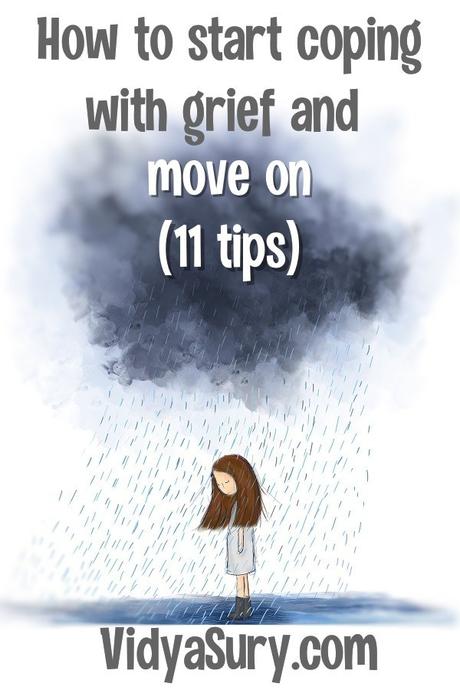
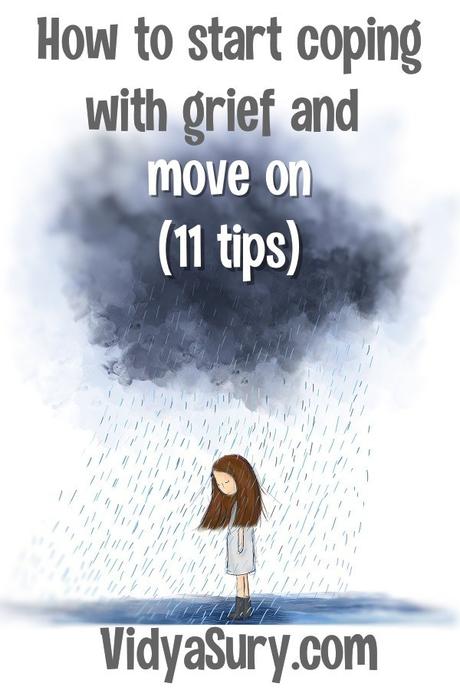
Here is how you can get started on your journey to coping with grief:
- Take one hour at a time. Don't rush the healing process. It is true that Time heals, so give yourself enough time.
- Get adequate sleep. As impossible as that sounds, staying up at night mourning can make things worse. You have to take care of you.
- Try and stick to your normal routine. This does not mean you are ignoring your feelings. You are just trying to get back into the swing of things
- Eat a balanced, nourishing diet.
- Avoid drowning your sorrows in alcohol or medications -they are not the best coping mechanisms. There are healthier alternatives to deal with pain.
- Draw upon your inner strength. Think about how you coped in the past to survive through difficult situations.
- Share your feelings with others. Talk to family and friends and have a good cry. Let those tears flow.
- Take some time off to get yourself together. Take time to sort out your feelings. It's okay to go away to come to terms with the situation.
- Don't ignore the pain. To really heal, it is better to face the pain and get the closure you need.
- You do not have to be brave. It is perfectly okay to be sad, scared and lonely. This is a normal reaction to loss. It's okay to cry. It's okay to allow others to see how you feel. And it is okay not to feel like crying, too.
- Try to recall happy memories rather than focus on the negative things. Think about the good times you shared to carry you through this difficult time.
Remember it is perfectly fine to take your time and reach out for help when you need it.
Helping a loved one in coping with grief
When a friend or family member has lost someone close to them, being there for them is comforting. While words cannot compensate for the pain they're going through right now, here are seven ways you can help them start coping with their loss.
- Visit them. Perhaps bring them lunch/dinner.
- Put your arm around them. Sometimes a gentle touch can do more than words.
- Sit with them, listen to them. Allow them to cry.
- Show genuine concern. Be patient.
- Be tactful. Gently remind them of happy memories about the person. Try to make them smile.
- Call them to find out how they're doing.
- Be kind.
Our family has faced the loss of many loved ones this year. We talk about them. We remember the happy moments, and yes, sometimes the sad ones too. At the end of the day, painful though it is, we just feel blessed for the experience.

